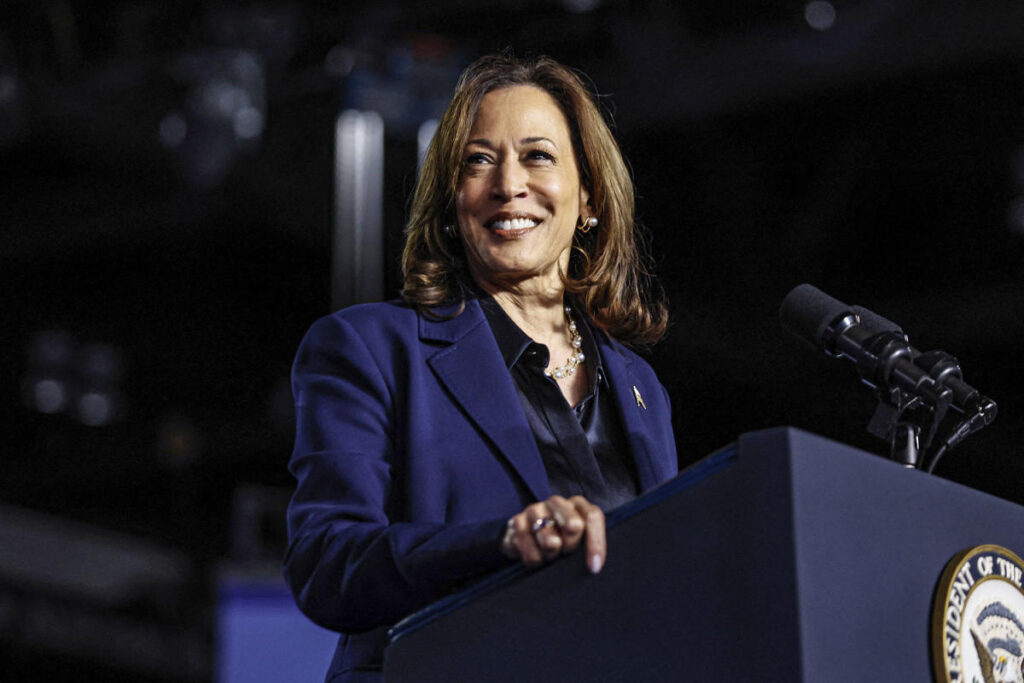Vice President Kamala Harris recently addressed the relationship between vice presidents and their presidents during a campaign rally in Grand Rapids, Michigan. In response to questions about critical differences she would have made in President Joe Biden’s policies during his tenure, Harris emphasized the American tradition of vice presidents not publicly denigrating their presidents. This sentiment mirrors past vice presidents, including Mike Pence, asserting that maintaining a respectful relationship is essential for unity and effective governance. Harris’s careful balance of criticism without directly attacking Biden indicates her awareness of the political landscape, especially as she faces scrutiny from her Republican opponent, Donald Trump, and must navigate her own position in the campaign.
Despite the challenges presented by declining public approval ratings for Biden, Harris refrained from specifying any policies she would have approached differently, although she did state her intentions should she become president. Notably, she highlighted her home health care proposal, aimed at supporting families caring for sick relatives, as well as her commitment to making housing more affordable. This approach signals her desire to position herself as a distinct candidate with her own priorities, though she stops short of overtly distancing herself from Biden. Her reluctance to criticize the administration may stem from a strategic decision to maintain solidarity at a time when the Democratic leadership is under pressure.
Harris has received criticism regarding her campaign’s perceived lack of enthusiasm, particularly from Trump, who claims that joy has faded from her support base. In response, Harris expressed confidence and positivity, arguing that addressing the threats posed by Trump does not negate her optimistic outlook on the future of America. She maintained that being clear-minded about Trump’s impact does not conflict with an overall hopeful perspective, indicating her dual strategy of raising awareness about political dangers while encouraging a positive narrative about her vision for America.
Amid pressing questions on the political gender gap and Trump’s appeal to male voters, Harris confidently claimed her campaign attracts a diverse constituency. She stressed her intention to represent all Americans, regardless of gender or background, and suggested that her experiences contradicted any perception that she was losing ground among male voters. Harris’s assertion reflects her commitment to an inclusive message and her campaign strategy, which seeks to resonate with a broad spectrum of the electorate as she engages with diverse audiences across the country.
As the campaign heats up, both Harris and Trump have ramped up their media appearances to connect with voters. Harris has embraced various media formats, including popular podcasts and interviews covering a range of issues, which marks a shift from her previous media engagement strategy. Conversely, Trump has canceled several scheduled interviews, raising questions about his campaign’s energy and readiness. Harris took this opportunity to critique Trump’s behavior, questioning his commitment to the rigorous demands of campaigning, especially following his withdrawal from multiple interview opportunities. Her remarks play into broader narratives regarding candidates’ fitness for office and their engagement levels.
Harris’s sharpening rhetoric toward Trump highlights a renewed focus on contrasting her approach and values against those of the former president as the campaign unfolds. She has specifically targeted his perceived lack of accountability and commitment, which could resonate with voters concerned about leadership qualities. By addressing Trump’s mental acuity and casting doubt on his campaigning energy, Harris aims to establish a clear distinction between her vision for America and Trump’s, positioning herself as a capable and ready alternative for the presidency. This strategic framing of the upcoming election suggests that Harris is not only defending her role within Biden’s administration but also defining her candidacy in stark opposition to that of Trump, all while hoping to unify support across different demographics.

